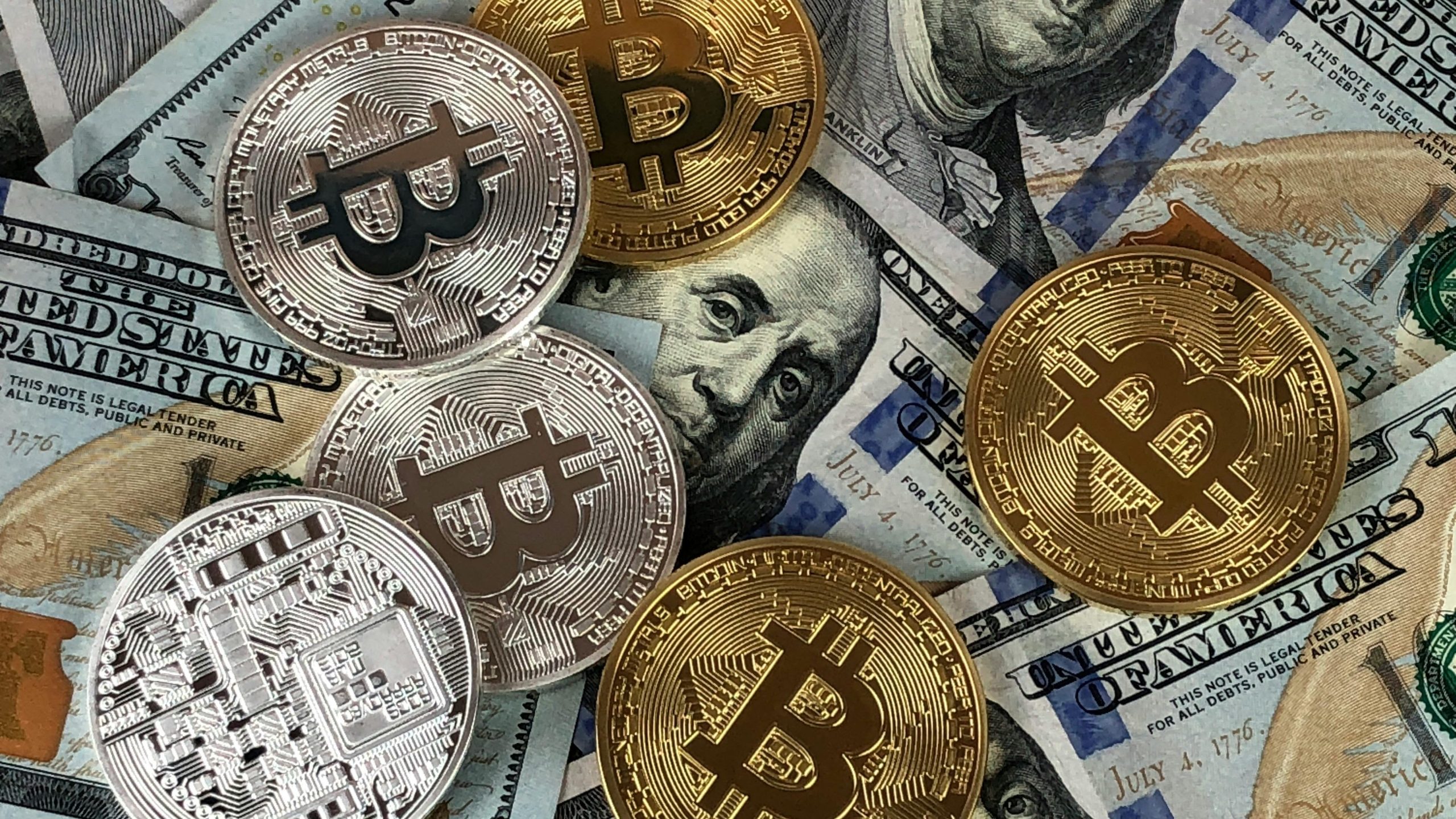Anúncios
Are you a beginner investor looking to make your first foray into the world of digital currency? Buying Bitcoin can seem daunting, but with the right guidance, it’s a straightforward process.

In this guide, we’ll walk you through everything you need to know to safely and efficiently purchase your first Bitcoin. From understanding what Bitcoin is to making your first transaction, we’ve got you covered. But before diving in, you might be wondering: Is Bitcoin a good investment? Let’s explore that question as we proceed.
Understanding Bitcoin and Its Uses
What is Bitcoin?
Bitcoin is a type of cryptocurrency created in 2009 by an anonymous entity known as Satoshi Nakamoto. Unlike traditional currencies, Bitcoin is decentralized and operates without the control of any government or financial institution. All transactions are recorded on a public ledger called the blockchain, ensuring transparency and security.
Why Bitcoin Was Created
The primary motivation behind Bitcoin was to create a peer-to-peer electronic cash system. This system allows for direct transactions between users without the need for intermediaries like banks. This reduces transaction fees and increases transparency, making financial interactions simpler and more efficient.
Main Uses of Bitcoin
Bitcoin can be used for various purposes:
- Online Purchases: Many online retailers accept Bitcoin as a form of payment.
- Investment: Bitcoin is often used as an investment asset to diversify financial portfolios.
- International Transfers: Bitcoin provides a quicker and cheaper alternative to traditional wire transfers, making it ideal for international transactions.
Benefits of Using Bitcoin
Bitcoin offers several advantages that make it appealing to both individual users and businesses:
- Freedom of Payment: Transactions can be conducted 24/7 worldwide, providing unparalleled flexibility.
- Security and Anonymity: Bitcoin transactions ensure high levels of security and protect users from potential fraud and identity theft.
- Financial Inclusion: Bitcoin promotes financial inclusion for individuals in regions with limited banking infrastructure.
Challenges and Risks
Despite its advantages, Bitcoin also comes with challenges:
- Volatility: Bitcoin’s value is highly volatile, which can lead to potential financial risks.
- Lack of Regulation: The absence of regulation can make Bitcoin a target for illegal activities.
Understanding these risks is vital before investing in Bitcoin.
Choosing a Reliable Bitcoin Exchange
Exchange Security
Security is paramount when selecting a Bitcoin exchange. Look for platforms that offer strong encryption, two-factor authentication (2FA), and cold storage options for your assets. Research the exchange’s history to ensure it hasn’t been involved in major hacks or security breaches.
Reputation and Reviews
Before committing to an exchange, check its reputation within the cryptocurrency community. Read reviews on reliable sources and forums to get a sense of other users’ experiences. Positive feedback on customer service and transaction speed are good indicators of a trustworthy exchange.
Fees and Pricing
Different exchanges have different fee structures for transactions, deposits, and withdrawals. Compare the fees across multiple platforms to find one that matches your budget. Be aware of hidden costs that may arise from withdrawal or conversion fees.
Supported Cryptocurrencies
While your primary goal might be acquiring Bitcoin, you might also want to consider other cryptocurrencies. Some exchanges offer a broad range of cryptocurrencies, allowing you to diversify your portfolio. Ensure the exchange supports the coins in which you’re interested.
Regulation and Compliance
Choosing an exchange that complies with regulatory standards in your country can offer added security and peace of mind. Regulatory compliance ensures that the exchange follows specific guidelines, which can include identity verification procedures and consumer protection mechanisms.
Setting Up Your Bitcoin Wallet
Types of Bitcoin Wallets
There are several types of Bitcoin wallets to choose from, each with its own advantages and disadvantages:
- Hardware Wallets: Physical devices known for their high security.
- Software Wallets: Applications you install on your computer or mobile device.
- Paper Wallets: Physical printouts of your private and public keys.
- Web Wallets: Online services that store your bitcoin keys.
Creating a Wallet
Creating a wallet typically involves downloading an application or purchasing a hardware device. For example, if you choose a software wallet, download the app from a trusted source and follow the installation instructions. Hardware wallets usually come with step-by-step guides.
Security Features
Ensure your wallet offers robust security features. Look for options such as two-factor authentication (2FA), seed phrases for backup, and secure password requirements. Enabling these features can help protect your assets from unauthorized access.
Backing Up Your Wallet
Backing up your wallet is crucial to prevent the loss of your bitcoins. Most wallets provide you with a recovery phrase or seed, which you should write down and store securely. This phrase can help you recover your wallet in case your device is lost or damaged.
Managing Your Keys
Your wallet will provide you with private and public keys. The private key is used to authorize transactions and should be kept secret; the public key is used to receive Bitcoin and can be shared. Proper key management is vital for securing your Bitcoin.
Verifying Your Identity
Why Identity Verification is Necessary
The primary reason for identity verification is regulatory compliance. Exchanges must adhere to anti-money laundering (AML) and counter-terrorism financing (CTF) laws. These regulations help prevent illegal activities and protect both the users and the platform.
Documents Needed for Verification
To verify your identity, you will typically need to provide several documents:
- Government-issued ID: Passport, driver’s license, or national ID card.
- Proof of Address: Utility bill, bank statement, or any official document displaying your address.
- Selfie: A photograph of you holding your ID document to verify its authenticity.
Verification Process
Begin the verification process by logging into your chosen Bitcoin exchange and navigating to the verification section. Upload the required documents as per the exchange’s instructions. Some platforms might also require a live video verification where you interact with a representative.
Common Verification Issues
You might encounter issues during the verification process. Common problems include:
- Blurry Photos: Ensure your documents are clear and legible.
- Expired Documents: All IDs and proofs of address must be current.
- Name Mismatch: Your submitted documents should display the same name you used to register on the exchange.
Tips for Smooth Verification
To ensure a smooth verification process, follow these tips:
- Double-check all your documents for clarity.
- Use common formats like JPEG or PNG for uploads.
- Be patient; verification might take a few days depending on the exchange’s workload.
Making Your First Bitcoin Purchase
Funding Your Account
Before purchasing Bitcoin, you need to fund your exchange account. Common funding methods include bank transfers, credit/debit cards, and sometimes PayPal or other payment services. Follow the exchange’s instructions on how to deposit funds into your account.
Choosing the Amount to Invest
Decide on the amount you wish to invest. It’s advisable for beginners to start with a small, manageable amount to get familiar with the process. Remember, Bitcoin is highly volatile, so invest only what you are willing to lose.
Placing a Buy Order
Most exchanges offer several types of buy orders such as market orders, limit orders, and stop orders. For your first purchase, a market order, which buys Bitcoin at the current market price, is usually the simplest option. Navigate to the buying section, enter the amount of Bitcoin you wish to purchase, and confirm the transaction.
Confirming Your Transaction
Once your buy order is placed, it will process, and you should receive a confirmation. The exchange will deduct the funds from your account and credit you with the corresponding amount of Bitcoin. You can check your wallet to verify that the Bitcoins have been received.
Storing Your Bitcoin
It’s advisable to store your newly acquired Bitcoin in a secure wallet rather than leaving it on the exchange. Transfer your Bitcoin to a hardware or software wallet where you control the private keys. This decreases the risk of losing your assets to potential hacks on the exchange.
Conclusion
Buying Bitcoin doesn’t have to be intimidating. By following the steps outlined in this guide, you can start your investment journey with confidence. Remember to choose a reliable exchange, set up a secure wallet, and verify your identity to ensure a smooth purchasing process. Always stay informed about the risks and benefits of Bitcoin to make educated decisions.
Ready to take your first step into the world of digital currency? Sign up now and start your Bitcoin investment today!


